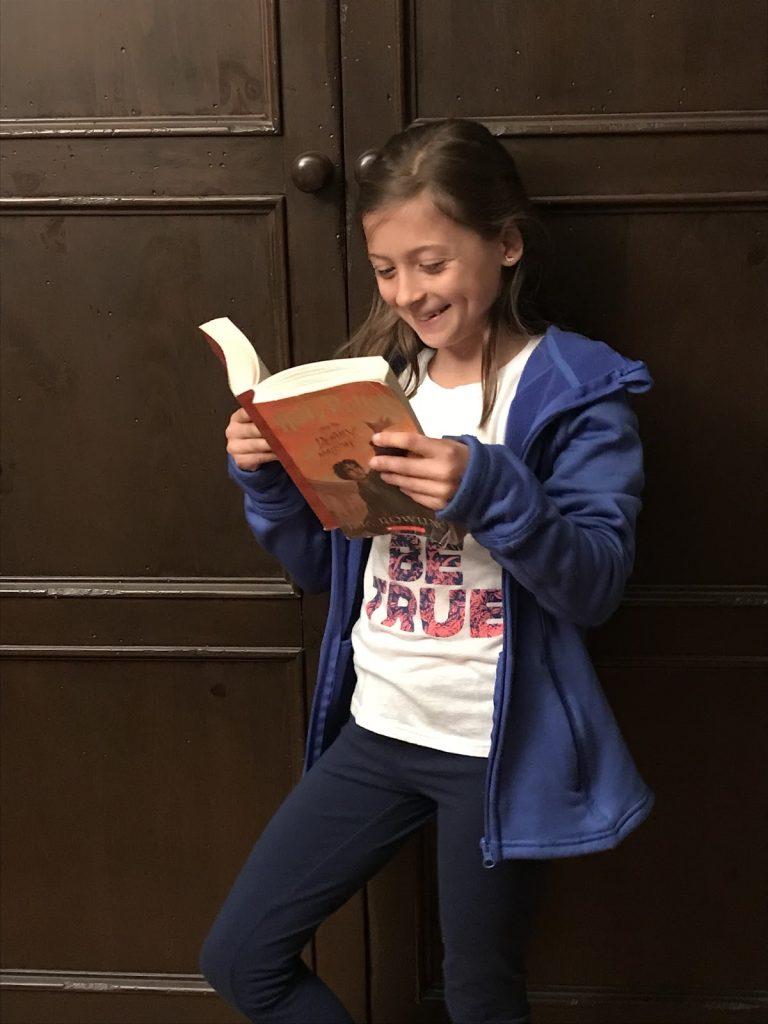
When you say “Harry Potter,” everyone knows exactly what you’re talking about, whether it’s due to their own obsession or that of their peers. The books have captivated the nation for over 20 years, which is a long time for a series to maintain such extreme levels of popularity. Take, for example, Mia Klepczynski (10), Franklin student and Harry Potter superfan, who has “all of the books in [her] room open to various sections at all times.” While it’s true that many other popular books were written in the ’90s, such as The Perks of Being a Wallflower (1999), few have had the same lasting grip on the minds and hearts of readers. Why has the Harry Potter series remained so popular?
One appealing aspect of the series is the strong and well-written female characters, from Hermione and Professor McGonagall to Bellatrix Lestrange and Narcissa Malfoy, who are “bad guys” but still not one-dimensional. Hermione in particular resonates with many young girls because she’s brave and smart, and shows that you don’t have to look like a beauty queen to save the day. She is three-dimensional and just as important to the series as Harry and Ron. “I like the characters a lot. That’s usually what draws me into a story, because if you can’t enjoy the characters, then you’re going to get bored with the storyline real quick and have no emotional attachment to it,” Klepczynski says.
The series is also engaging because the main characters are far from perfect. There’s Ron, who came from a poor family; Hermione, a muggle born, who faced bullying every year; and Harry, the Boy Who Lived, but also the little orphan who lived in a cupboard under the stairs. They made mistakes and got into fights, just like their real-world readers. The series was long enough (4,224 pages!) that readers became familiar with and were able to relate to the characters.
Another reason the series has withstood the test of time is the magical aspect. “I think a lot of people really enjoy the fantasy element, and a lot of people prefer fantasy over realistic fiction because it helps them escape this world, which kind of sucks, to be perfectly honest. Also, I think a lot of people would like to believe that there is some form of magic and that it could be hidden,” says Klepczynski.
Of course, not everyone is a fan. The series has faced religious debate since its debut in 1997. In one extreme case of this, a Fanfiction user going by the name of “proudhousewife” rewrote the first book in order to ensure her children wouldn’t “turn into witches.” This version is entitled Hogwarts School of Prayer and Miracles and follows Harry Potter’s conversion to Christianity and adventures at the titular school. Anti-evolution and anti-feminism beliefs are prevalent, and the main conflict of the story is a Reddit post about outlawing Christianity that Voldemort made as a joke. Additionally, in many schools across America, the original series has been banned for references to witchcraft.
However, this hasn’t prevented widespread Harry Potter appreciation. But will it still appeal to future generations, or are current readers the last of the Harry Potter fans? Ella Knecht, a local nine year old, has read four of the books and seen five of the movies so far, and thinks they’re all great. In addition, many of the kids at Knecht’s school, Glencoe Elementary, have become part of the ever-growing group of Harry Potter fans. “I know people at recess who will play Harry Potter. I’ll be Hermione sometimes and Ginny if I get the chance.”
Evidently, the popularity streak likely won’t end anytime soon. “It’s kind of got such a big community invested in it now that it’s going to be hard to stop,” says Klepczynski. “Also, with the Fantastic Beasts movies coming out, that’s just going to add more fuel to the fire.” With the already large fanbase still growing, the series is clearly here to stay.

































